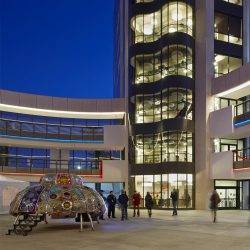March 11, 2019
Northern English cities held back by lack of opportunities for low skilled workers
 Despite higher living costs, southern English cities such as Oxford and Exeter lead the country in their ability to provide opportunities for people with low skills. A new report from the Centre for Cities on low-skilled workers claims that employment opportunities are greater for people with fewer or no qualifications in southern English cities than those in the North or Midlands. The report Opportunity Knocks? claims that, despite higher living costs in cities in southern England, their stronger economies create significantly more jobs for people with fewer qualifications. (more…)
Despite higher living costs, southern English cities such as Oxford and Exeter lead the country in their ability to provide opportunities for people with low skills. A new report from the Centre for Cities on low-skilled workers claims that employment opportunities are greater for people with fewer or no qualifications in southern English cities than those in the North or Midlands. The report Opportunity Knocks? claims that, despite higher living costs in cities in southern England, their stronger economies create significantly more jobs for people with fewer qualifications. (more…)











 Many built environment businesses are adopting increasingly ambitious sustainability commitments reports the UK Green Building Council in its third annual report ‘Leading the Way’. This presents trends and analysis from research conducted as part of UKGBC’s annual Sustainability 360 Reviews, which look at sustainability trends and insights amongst UKGBC’s 50 industry-leading Gold Leaf member businesses.
Many built environment businesses are adopting increasingly ambitious sustainability commitments reports the UK Green Building Council in its third annual report ‘Leading the Way’. This presents trends and analysis from research conducted as part of UKGBC’s annual Sustainability 360 Reviews, which look at sustainability trends and insights amongst UKGBC’s 50 industry-leading Gold Leaf member businesses.




















February 7, 2019
Maybe the time has come to shoot the workplace messenger
by Rob Harris • Comment, Flexible working, Wellbeing, Workplace design